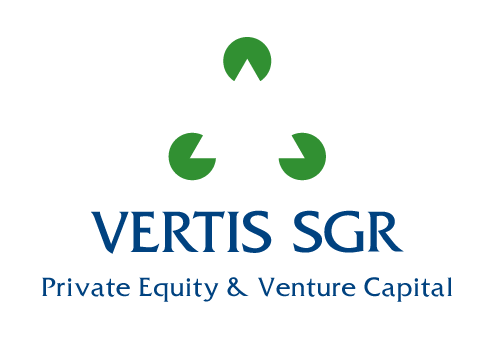Sustainability
Vertis adopts a responsible investment approach in selecting its investments; ESG factors are therefore integrated into the investment process, thus allowing an even more reliable analysis of both potential opportunities and any risks

Adaptation to Regulation (UE) 2019/2088 of the European Parliament and of the Council of 27 November 2019
Sustainable Finance Disclosure Regulation
(SFDR)
Asset Manager
ART. 3: Transparency of sustainability risk policies
Vertis in 2021 started a gradual process of raising awareness of ESG issues.
Vertis pays particular attention to sustainability issues and the impacts of its investment activities. To this end, the AM, during the 2022, signed the Principles for Responsible Investment (PRI) adopted by the United Nations and has integrated the assessment of sustainability risks, as defined by Regulation (EU) 2019/2088, within its risk management system, in order to identify and manage sustainability risks that are likely to create potential impacts for the AM and for the AIFs managed.
The integration of sustainability risks into investment decisions is implemented in funds operating after the date of application of the first version of the ESG Policy (March 1° 2021).
Furthermore, Vertis has hired a Head of ESG and also takes advantage – where needed – of external consultants during the investment process.
The responsible investment process is supported by the use of an ESG Model (in house developed) through which to identify ESG risks/opportunities. The ESG framework is integrated into the entire investment process as follows:
Scouting phase (pre-investment)
- a sectoral exclusion and an ethical screening are conducted in compliance with the investment limits provided for in the Funds’ Regulations.
Preliminary phase (acquisition)
- an internal ESG analysis is defined through calls and questionnaires shared with the management of the Target, through which to prioritize the material indicators, calculate their performances and assign an ESG score (from 0 to 10) which translates, in turn, into an ESG Rating notch (A>B>C>D>E), which is integrated into the financial valuation model;
- an ESG data sheet attached to the Investment Memorandum document is prepared;
- if approved by the Investment Committee, if it is deemed appropriate, an ESG due diligence is carried out, in this case, conducted by an external advisor.
Monitoring phase (management)
- an engagement activity is carried out with the management of the investee companies, which aims to raise awareness on the implementation of the defined Action Plans;
- to this end, bonuses may be applied to the management of the investees, depending on whether the ESG performances improve or worsen.
Exit phase (divestment)
- ESG performance achieved during the holding period is recorded;
- an ESG data sheet attached to the Exit Memorandum document is prepared.
NO CONSIDERATION OF ADVERSE IMPACTS OF INVESTMENT DECISIONS ON SUSTAINABILITY FACTORS
ART. 4: Transparency of adverse sustainability impacts at entity level
Vertis, in compliance with the Article 4 (1), point (b), of Regulation (EU) 2019/2088 of the European Parliament and of the Council of 27 November 2019, does not consider any adverse impacts of its investment decisions on sustainability factors – by reference to the indicators listed in Table 1 of Annex I of the Commission Delegated Regulation (EU) 2022/1288 of 6 April 2022 – as it is considered that the system of indicators, reported in the latter, is not necessarily to be deemed material – in its entirety – in consideration of the size and specificity of Vertis’ operations.
ART. 5: Transparency of remuneration policies in relation to the integration of sustainability risks
Vertis is not obliged to draft a remuneration and incentive policy as a sub-threshold asset manager pursuant to AIFM regulations.

